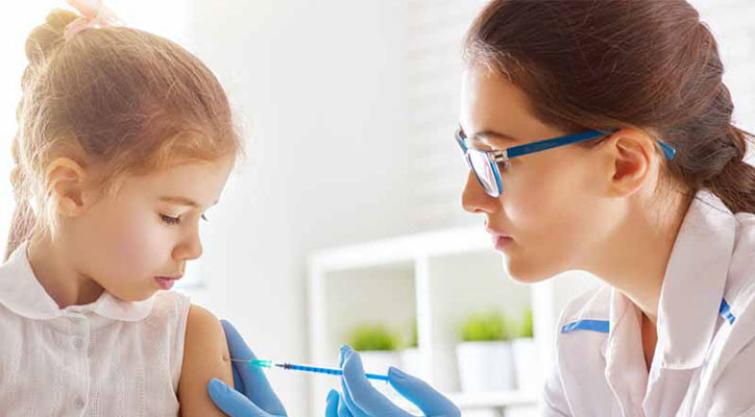By FnF Correspondent | PUBLISHED: 26, Mar 2024, 20:00 pm IST | UPDATED: 26, Mar 2024, 20:00 pm IST
 When you are a parent, the most important thing for you becomes your child's well-being - their social, emotional, mental and above all, physical well-being. So while you might cringe when your infant or toddler cries out after getting a vaccine shot, you also know vaccines are essential to keep your child healthy and safe. By working with your body's natural defences to build protection, vaccines protect against several diseases, helping people live longer and stay healthier.
When you are a parent, the most important thing for you becomes your child's well-being - their social, emotional, mental and above all, physical well-being. So while you might cringe when your infant or toddler cries out after getting a vaccine shot, you also know vaccines are essential to keep your child healthy and safe. By working with your body's natural defences to build protection, vaccines protect against several diseases, helping people live longer and stay healthier. Dr Mubashshir Khan, Consultant - Neonatology, Manipal Hospital, Baner, Pune, shares, "Vaccinations are essential for shielding children, especially in their early years, from possibly deadly diseases. Maintaining a thorough immunisation regimen will help protect a child's health and foster general growth. Though it can be difficult to watch a child get a vaccine shot, getting up to date on the child's first year of vaccinations is one of the most important things parents can do for their health."
Some diseases that were formerly thought to be incurable are now either completely eradicated or very easily managed because of vaccinations, the doctor shares. "However, a lot of new diseases have also been discovered recently. This highlights the need to immunise children even more," says Dr Khan.
Dr Mubashshir Khan shares a list of vaccines across age groups in initial years:
They are given BCG, oral polio, and Hepatitis B-1 vaccines before they go home. The main disease that the BCG vaccine protects against is tuberculosis.
The first vaccination in the six-week immunisation schedule is DTwp1, which protects against whooping cough, diphtheria, and tetanus.
For the second polio vaccine, IPV1 injections are given instead of oral drops.
The HIB-1 vaccination reduces the risk of meningitis and pneumonia by protecting against illnesses brought on by the Haemophilus influenzae bacteria.
The rotavirus 1 immunisation is necessary for lowering the prevalence of severe diarrhoea, which in young children can be fatal.
PCV 1 protects the body from different pneumococcal bacterial strains, preventing illnesses like septicemia and chest infections.
Second Round of Immunisation: The second dose of the Hepatitis B vaccine is administered; booster shots are frequently needed before the child turns one year old. The second round of immunisations, which includes DTwP2, IPV 2, Rotavirus 2, Hib 2, and PCV 2, as specified on the vaccination card, starts at ten weeks.
The third round of immunisations, which includes DTwP3, IPV 3, Rotavirus 3, Hib 3, and PCV 3, is given to the infant at 14 weeks of age.
After six months, oral polio vaccination is usually given along with the last dose of the Hepatitis B vaccine. One important milestone at nine months is getting the MMR vaccine, which is advised by doctors before the end of 270 days to prevent measles, mumps, and rubella.
Second round of oral polio vaccination: When the infant is 12 months old, the Hepatitis A1 vaccination is given together with the child's first birthday, thereby finishing the first year of immunizations.
" A baby has a twelve-year vaccination schedule, which emphasises how important it is for parents to keep the immunisation card their doctor issued safe. This card acts as a record of the different immunisations that the kid received and provides important information in case it's needed later," shares Dr Khan.
It is important to consult with the child's paediatrician to make sure they receive all prescribed vaccinations on time, says Dr Khan. "Using this checklist can protect the child against diseases that could be dangerous and improve their general health and well-being throughout these important early years. Recall that immunisations not only save the child from harm but also aid in halting the spread of infectious diseases among neighbours. Maintaining current vaccination records is essential for fostering a healthy future for both children and society at large," Dr Khan adds.

by : Priti Prakash
This week has thrown up a firestorm of global developments. Let's dive into the top 5 internati...